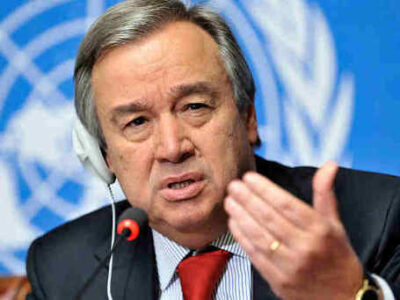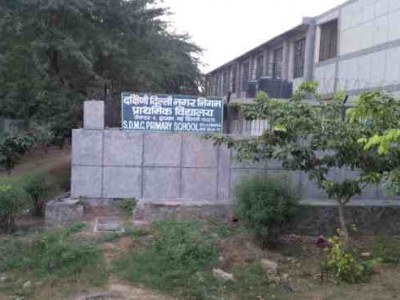
One in Four Children in Conflict Zones Out of School

On 5 January, during a school day, 9 year old Ayman sells candies in the streets of Kafar Batna village in Rural Damascus.
In 22 countries affected by conflict, nearly 24 million children living in crisis zones are out of school, UNICEF said Tuesday.
The analysis highlights that nearly one in four of the 109.2 million children of primary and lower secondary school age – typically between six and 15 years – living in conflict areas are missing out on their education.
South Sudan is home to the highest proportion of out of school children with over half (51%) of primary and lower secondary age children not accessing an education. Niger is a close second with 47% unable to attend school, followed by Sudan (41%) and Afghanistan (40%).
[ Also Read: How India Abuses Children’s Right to Education ]
“Children living in countries affected by conflict have lost their homes, family members, friends, safety, and routine. Now, unable to learn even the basic reading and writing skills, they are at risk of losing their futures and missing out on the opportunity to contribute to their economies and societies when they reach adulthood,” said UNICEF Chief of Education Jo Bourne.
In countries affected by conflict, collecting data on children is extremely difficult and therefore these figures may themselves not adequately capture the breadth and depth of the challenge.
[ Can Madrasas in India Provide Modern Education to Muslims? ]
UNICEF fears that unless the provision of education in emergencies is prioritised, a generation of children living in conflict will grow up without the skills they need to contribute to their countries and economies, exacerbating the already desperate situation for millions of children and their families.
Education continues to be one of the least funded sectors in humanitarian appeals. In Uganda, where UNICEF is providing services to South Sudanese refugees, education faces an 89% funding gap.
[ RMN Foundation: Free Schools for Deserving Children ]
During episodes of instability and violence, schools become more than a place of learning. UNICEF is working to create safe environments where children can learn and play to restore normalcy to their lives.
Despite these efforts, UNICEF says, security restrictions and funding shortfalls are affecting education and the distribution of learning materials in conflict situations.
Photo courtesy: UNICEF


